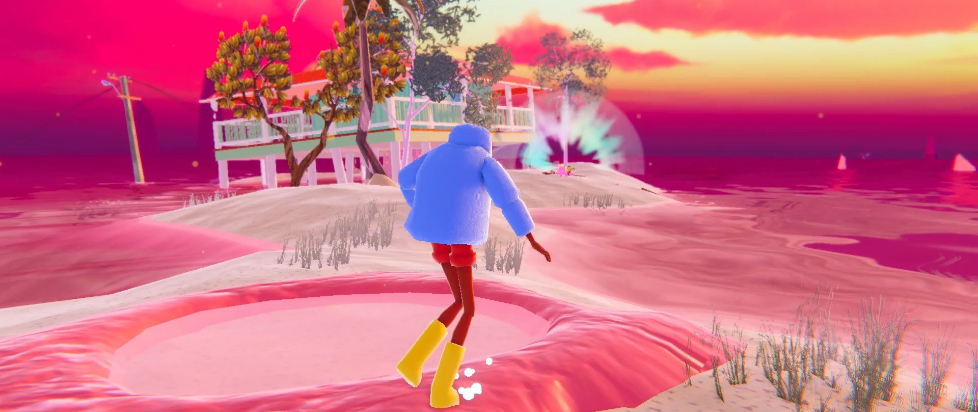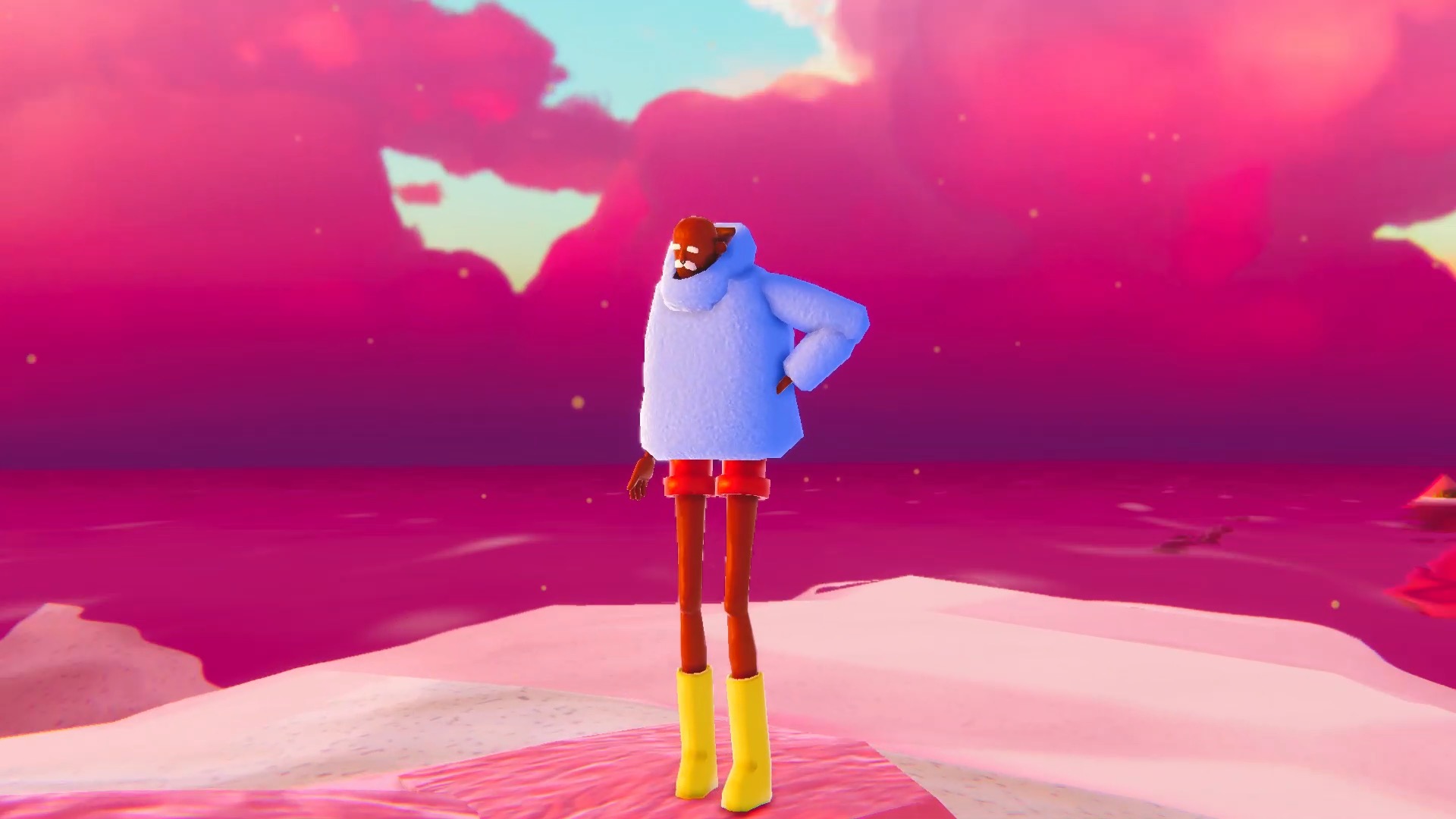
Flooded Memories

This column is a reprint from Unwinnable Monthly #163. If you like what you see, grab the magazine for less than ten dollars, or subscribe and get all future magazines for half price.
———
What does digital grass feel like?
———
The flood myth is one of the oldest and most widespread stories humanity has. Cultures from around the globe and across time have told similar tales: deluges, water rising uncontrollably and sweeping away land and lives.
Some scholars speculate that many of these myths are inspired by real experiences of people living at the end of the last glacial period, almost 12,000 years ago. Others point to asteroid impacts, tsunamis and regular, but no less devastating, river flooding. Regardless of the specific event, genuine moments of collective fear and confusion are held, fossil-like, in the stories.
I often wonder what traces our current sea level rise will leave in the record. Cities under the water, yes, but what myths emerge from real Atlantises?
Queer Man Peering into a Rock Pool.jpg takes place as the waters recede. Every day, the protagonist’s island gets a little more uncovered and, though there are still puddles and crevices full of water, there’s also shiny, beautiful debris. The protagonist picks up these memories that have gotten lodged between rocks and refurnishes his house with them.
But the memories aren’t perfect. The weird, glittering pink objects he finds in the rock pools become strange, dream-like approximations of furniture. A lorikeet statue sits next to a giant, slowly rotting pear. The house itself is bizarre and shifting, pixelated trees appearing inside and a talking – but unintelligible – computer being the only spot to sit and rest.
If divers in thousands of years excavate our homes, will they understand what they find? The closest modern analogy to a Venus figurine is an anime statuette, but we prefer to think of them in more solemn terms. Ritual use. Fertility symbols. Self-portraits. Time blurs our understanding, not directly, but by making us feel so different from the people who created things so similar to those we have today.

But Queer Man Peering into a Rock Pool.jpg bridges this gap by being deeply grounded in the modern. In an interview with Game Developer, creators Scott Ford and Pete Foley spoke about their inspirations for the game. “During COVID-19 we had a very regular morning walk routine,” says Ford. The pair also talk about doing a lot of things together: Ford watching Foley play Animal Crossing, watching TV and movies and, of course, making a game.
At a time when life had changed rapidly and uncontrollably, two constants: walking and human connection. The same things that the protagonist of Queer Man Peering into a Rock Pool.jpg uses in their own suddenly changed world. Every day, he goes searching for objects, brings them home and then writes a letter to his lover, Darl. And he doesn’t seem unhappy with his lot. It seems that these are the things which sustain him, and that they are enough.
We don’t get these details in many flood myths. There’s no description of Noah pacing the decks of the ark with his wife and sons. But people must have clung to their routines as the waters were rising. They must have tried to get outdoors, get gentle exercise, stick close to their loved ones. They must have, because these are the instincts of people when the world shifts rapidly, whether it be an ending ice age or Queer Man Peering into a Rock Pool.jpg’s strange, Evangelion-like apocalypse.
Maybe the specifics will stick around as our own flood waters rise. Certainly, we have more of the technology to make it possible. But we also seem to have more of a desire. We didn’t only save the raw facts about the first year of the COVID-19 pandemic, we also tried to showcase how Animal Crossing was integrally tied to our collective experience of it. Perhaps it’s because we have a more historicized culture. Perhaps it’s because we can see the seas rising and we know what comes next. After all, we’ve heard so many stories about it.
But if time sands down those details, maybe the art of the future will help people to imagine it. A far-off analogue to Queer Man Peering into a Rock Pool.jpg might do the same thing it manages to: focus on the indelibility of routine and connection next to the vagueness of memory, the juxtaposition showing the unimportance of knowing precisely what happened compared to considering the humanity represented by what we do recall.
———
Jay Castello is a freelance writer covering games and internet culture. If they’re not down a research rabbit hole you’ll probably find them taking bad photographs in the woods.




